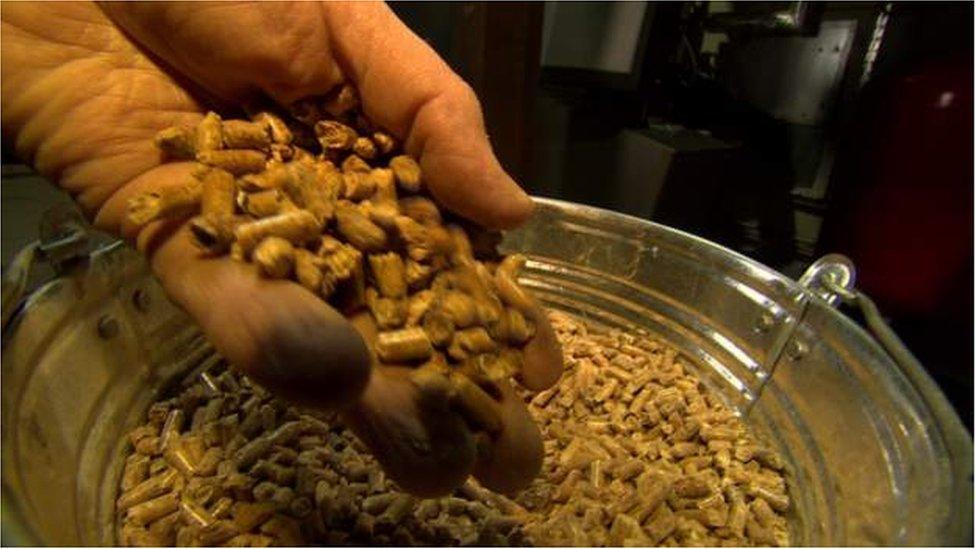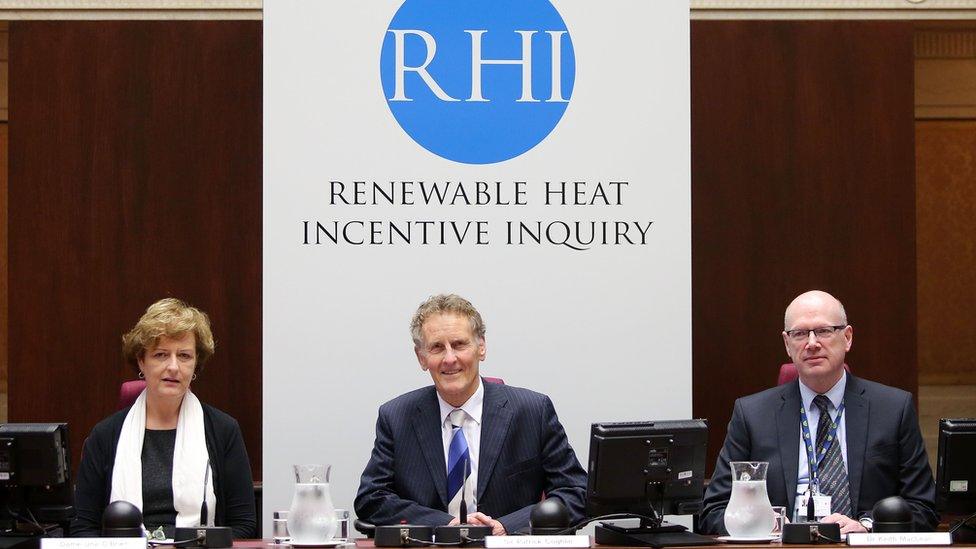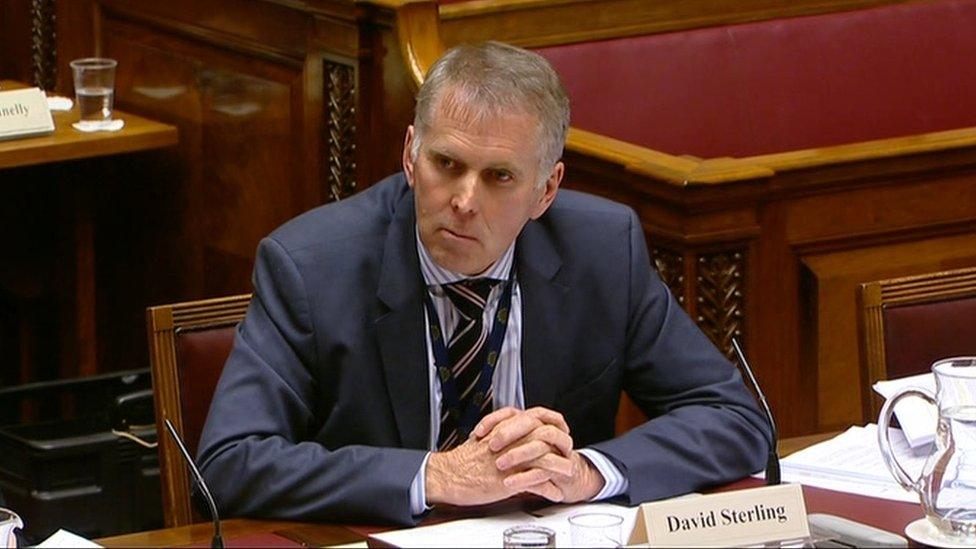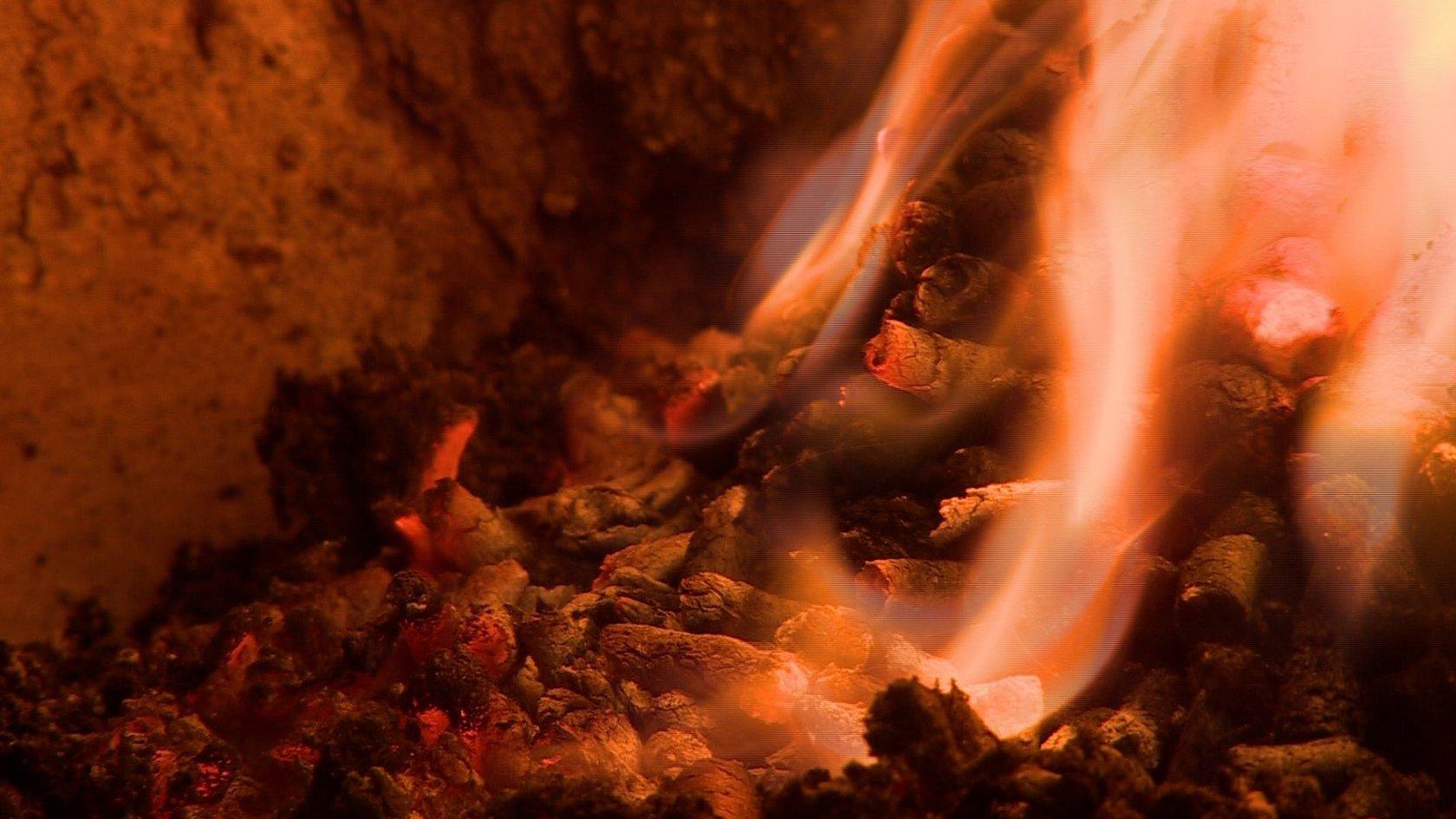RHI Inquiry: NI didn’t copy GB scheme due to payout fears
- Published

Northern Ireland did not participate in a wider green energy scheme because of worries "over incentivisation", a public inquiry has been told.
The claims are contained in a consultation document on the NI scheme, junior counsel to the inquiry said.
It is now known that while the equivalent green energy scheme in the rest of the UK had cost controls, the Northern Ireland scheme did not.
The inquiry into the Renewable Heat Incentive (RHI) scheme began last week.
On Wednesday, it heard that much preparatory work had been done in the rest of the UK ahead of the scheme's introduction.
Again and again, reports pointed out the risk of businesses burning fuel just to earn the subsidy and steps that should be taken to counter that possibility.
'Emergency brake'
Sir Patrick Coghlin, who is chairing the inquiry, said he found it "amusing" that while preventing abuse had been a key consideration for officials in Britain, officials here had dismissed a businesswoman who had tried to alert them to it.
Jeanette O'Hagan told senior civil servants that she believed businesses here were abusing the scheme but she was told that people in Northern Ireland would not do such a thing.
To laughter, Sir Patrick said the comment might be a "reflection of the much higher morality of the Northern Ireland population".

The RHI Inquiry panel is made of up of Sir Patrick Coghlin (centre), Dame Una O'Brien and Dr Keith MacLean
Later, Sir Patrick was told that as officials here were finalising the Northern Ireland RHI scheme, officials in Great Britain were consulting on an emergency brake for theirs, were it to be needed.
The scheme in Great Britain was only three months old when civil servants began consulting on powers to temporarily close it if applications flooded in and put pressure on the budget.
At that time, uptake in Great Britain was slow, but the inquiry was told they were alert to the risk after an earlier green energy scheme had led to problems.
All this was happening as civil servants here were presenting a submission to Arlene Foster to allow for the commencement of the Northern Ireland scheme.
Counsel to the Inquiry Joseph Aiken said the inquiry would want to establish how aware Northern Ireland officials were of the work done in Britain.
"Did any of this learning make its way to DETI?" he asked.

David Sterling was permanent secretary at the Department of Enterprise Trade and Investment when the RHI scheme was introduced
Sir Patrick said it was "hard to swallow" the contention that employing just five staff was adequate to run what turned out to be a complex and highly flawed scheme.
He heard that by June 2014, just a handful of officials were dealing with the scheme.
He was told that evidence from the then permanent secretary of the Department of Enterprise, Trade and Investment, David Sterling, showed that in the face of cuts he had tried to secure more staff.
Mr Sterling said that staff in the energy division of his department, which included the RHI team, had a "can-do attitude" and a willingness to take on "new tasks and challenges".
But Sir Patrick said the RHI scheme was new and complex, and that five people "who don't have any particular expertise or previous experience" had been asked to operate it.
"To take the view that these five people are adequate because they have a can-do attitude is potentially difficult to swallow," he said.
Mr Sterling is currently the head of Northern Ireland's civil service.
- Published15 November 2017
